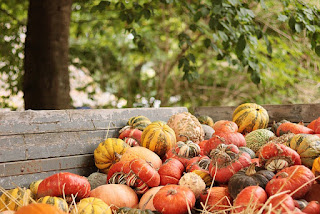
What is Organic Living?
Organic living is all about embracing a lifestyle that prioritizes natural and eco-friendly choices. But what exactly does that mean? Let’s break it down.
At its core, organic living means opting for products and practices that are as natural and unprocessed as possible. This includes everything from the food we eat to the materials we use in our homes.
Organic Food: This involves choosing foods grown without synthetic pesticides, herbicides, or genetically modified organisms (GMOs). Organic farming focuses on using natural fertilizers and methods that sustain the health of the soil and ecosystem. For instance, instead of chemical pesticides, organic farmers might use beneficial insects to control pests.
Eco-Friendly Products: Organic living also extends to the products we use daily. This could mean using biodegradable cleaning supplies, natural skincare products, or sustainable clothing made from organic cotton. These choices help reduce the amount of harmful chemicals released into the environment.
Green Practices: Embracing energy-efficient appliances, reducing waste, and recycling are all part of organic living. For example, composting kitchen scraps turns waste into valuable soil enrichment, reducing landfill use and supporting local ecosystems.
Real-Life Examples
Consider the case of a small urban garden. By choosing organic seeds and using natural compost, a family not only grows their own fresh vegetables but also reduces their carbon footprint. This practice aligns with organic living by avoiding synthetic chemicals and promoting a healthier environment.
Another example is a company that manufactures eco-friendly cleaning products. They use natural ingredients and minimal packaging, demonstrating how businesses can contribute to organic living by reducing environmental impact and promoting sustainability.
How Organic Living Impacts Our Self-Sustainable City Project
In our self-sustainable city project, organic living is a cornerstone of our approach. Each home in our community features organic orchards, allowing residents to grow their own pesticide-free fruits and vegetables. This not only provides fresh produce but also enhances the local ecosystem by fostering biodiversity.
Additionally, we use organic materials in construction and design. By prioritizing sustainable practices and materials, we reduce our environmental footprint and promote healthier living spaces.
Join the Conversation!
How does organic living fit into your lifestyle? Do you have any tips or questions about making the switch to a more natural and eco-friendly way of living? Share your thoughts in the comments below!
![Self-Sustainable City - Ramakrishna Surathu [Official Website]](https://blogger.googleusercontent.com/img/a/AVvXsEivh2bAyNCG-DxYf4p_lHLcFQx1i8MvbBv91UgzKqAFrNMhT8xW-fwxgNJTdtojgb9aYXiG9EdNYLo8tNmtaakyq-zmnaCeeUGMdpvJ8iOaVzd2tSKEC2UrUXzFJa952LPF-OngfPenpbFOj7b8AcbYtPGSng6xbGr-_NwEIRpXZg_QdKLGRMGeg5pWmtaQ=s1280)
No comments:
Post a Comment